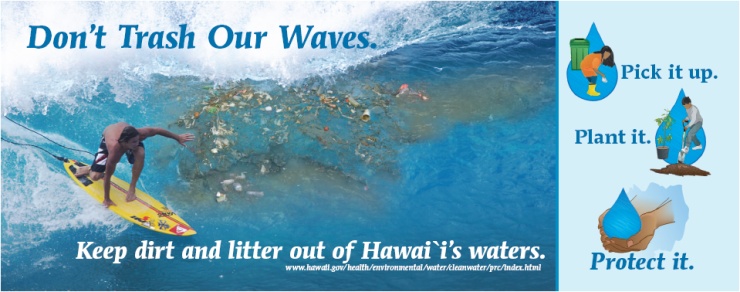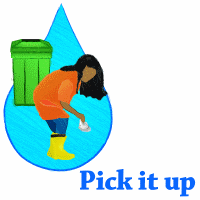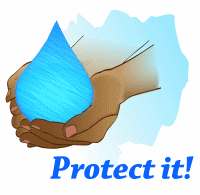What You Can Do
What You Can Do to Prevent Polluted Runoff

Prevent Toxins and Bacteria from Entering Waterbodies
The products we use and how we dispose of waste affect the health of our waterbodies.
- Prevent bacteria from entering waterbodies by picking up after your pet. Take a plastic bag with you when walking your pet and dispose of the waste in a trash receptacle.
- Dispose of trash, cleaners, poisons or other chemicals at a recycling or disposal center! Never pour them down a storm drain.
- Conduct a soil test before applying fertilizers to determine nutrient needs, and use organic alternatives if possible. Fertilizer runoff contributes to toxic algal blooms in the ocean, making the water unsafe for wildlife and humans.
- Regularly maintain vehicles and machinery. Check for leaks and properly dispose of used oil and other automotive fluids.
- Use biodegradable, nontoxic, recycled and recyclable products whenever possible. Use low- or no phosphate dishwashing and laundry detergent.
Prevent Runoff and Erosion
Install methods that will help water soak into the ground instead of running off of your property.
- Plant appropriate vegetation next to streams or rivers. Do not mow up to the water’s edge.
- Water in the early morning to conserve water and prevent evaporation. Mulching and drip irrigation methods will help conserve water, too.
- Do not leave soil exposed on your property.
- Plan ahead! Fertilize your lawn when rain is not forecasted and apply only the recommended amount of fertilizer.
- Use a commercial car wash or wash your car on an unpaved surface to minimize the amount of dirty, soapy water that enters a storm drain or waterbody.
Maintain Septic and Cesspool Systems
Improperly maintained septic systems and cesspools can cause sewage-containing bacteria, nitrogen and phosphorus to enter nearby waterbodies or aquifers.
- If you have a cesspool, replace it with a septic system or another wastewater treatment system. Note: State law requires that cesspools be replaced by 2050.
- If you have a cesspool, reduce your water usage to minimize sewage movement into ground water or surface waters.
- Garbage disposals increase water usage and increase the need for septic tanks to be pumped. Compost or throw away your food waste instead of using a garbage disposal.
- Maintain your septic system. Have it inspected by a professional every 3 years and pumped every 5 years or as necessary.
- Do not dispose of trash, cleaners, poisons or other chemicals in the septic system or cesspool. Take them to a disposal center.
 |
 |
 |
